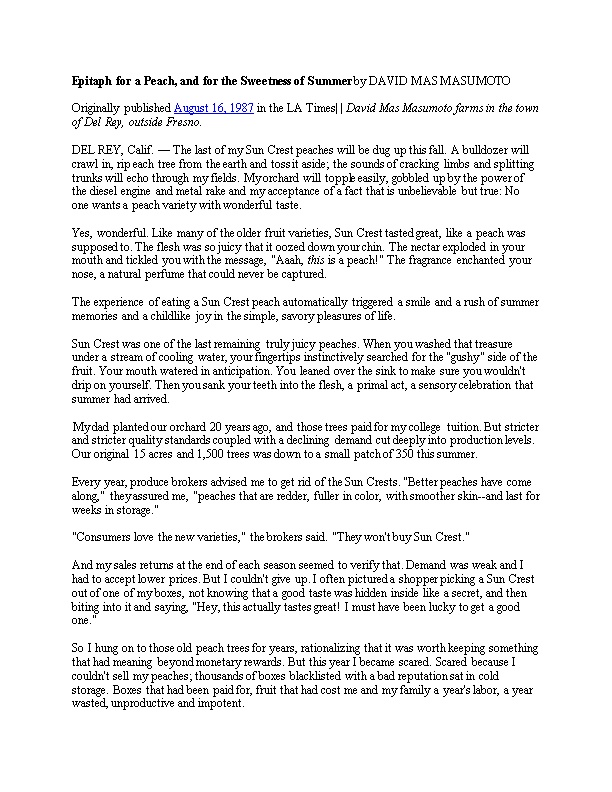


Size inflation permeates our consumer world: bigger cars are seen as safer when it’s the driver who is the major factor in accidents. We involuntarily reach for the bigger fruit believing it must be better. We succumb to attitudes because we are creatures of habit. Or treatment recommendations can be influenced by race - for example, blacks are prescribed painkillers at lower rates than others because of the perception they can better tolerate pain. For example, studies show that in the medical world people unconsciously trust a male doctor more than a female. We see the world through a narrow lens created by experiences and associations not necessarily aligned with our declared beliefs. It’s scary to realize how we judge and are being judged. Our family farm clung to the belief that for some, flavor and taste still mattered. I have battled this notion for decades as I maintain a belief in heirloom fruit varieties, refusing to accept the implicit bias that quality is based solely on physical attributes such size and the color of skin. Many buyers will also “see” a nectarine that is red as superior to one that is golden or with streaks of yellow.

I witness this in a grocery store and certainly in my sales reports: consumers will judge my peaches often solely on size - a bigger peach is perceived as the better peach.


 0 kommentar(er)
0 kommentar(er)
